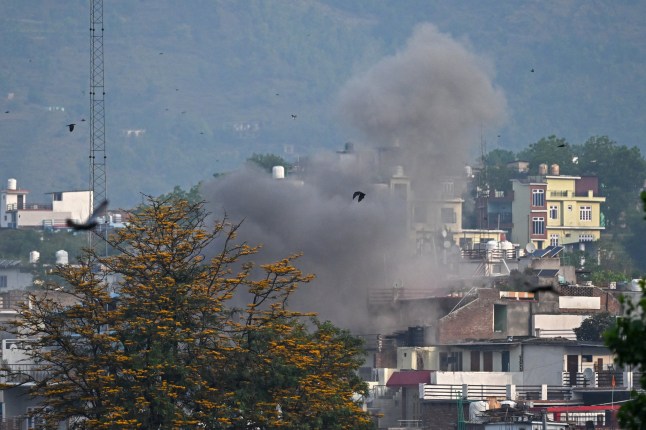The Challenge and Response of EU Climate Governance to the "Right-wing Resonance" in Europe and the U.S
 2025-05-07
2025-05-07
Yang Yunzhen, researcher at the German Studies Center of Tongji University
After U.S. President Trump's second term in the White House, traditional transatlantic relations have been eroded. However, Trump and European far-right leaders have been supporting each other. Both Trump and European far-right parties uphold the values of "national ecologism," the resonance between the right wings in Europe and America will inevitably bring new challenges to the EU's climate governance.
First, the European and American far-right share the values of "ecological nationalism".
The idea of eco-nationalism,“we only care about nature within our own borders,” has deep historical roots. At its core, the nationalist movement is a pathological reaction against modernity, blending 19th-century cultural biases and a romantic obsession with purity. In the 20th century, it opened the political chapter with anti-enlightenment sentiments. Radical nationalism, racism, and environmentalism form a chain of fate, with the emergence of modern ecology being the final link in this chain. Ecological nationalism emphasizes the spiritual connection between the state and nature, contrasting sharply with the rootless environmentalism of cosmopolitanism.
Eco-nationalism expresses nativism and spiritual sentiments through the appreciation of native species or pristine landscapes. The far right is concerned about domestic problems such as deforestation, pollution, and biodiversity, but it turns a blind eye to transboundary issues like climate change and energy supply. In the context of Trump 2.0, global politics are shifting to the right, and eco-nationalism seems to be resurfacing.
Second, the EU's climate governance faces challenges.
The far-right is defying the tide, putting EU climate policy at risk of regression. European far-right parties generally harbor doubts about the European Green Deal, arguing that it imposes heavier economic burdens on workers and farmers. They call for slowing down emission reduction targets and even repealing certain policies, such as the ban on gasoline vehicles by 2035. Jordan Bardella ,leader of the National Rally in France, believes that the European Green Deal constrains economic growth and points out that the return of U.S. President Donald Trump is the main reason for shelving this environmental legislation.
Secondly, it changes the direction of climate policy debates, emphasizing "climate adaptation" over "climate protection." The AfD refuses to acknowledge the scientific consensus that climate change is caused by human activity. In June 2024, when southern Germany was hit by floods, the AfD took the opportunity to portray itself as the savior of the emergency and used the public's desperation to promote its ideology of transforming nature into a home and a symbol of patriotism, and used climate adaptation to develop reactionary policies aimed at achieving a racially homogeneous society.
The Environment Policy Spokesperson of AfD in the Bundestag, Katrin Hils (Karsten Hilse), called for the establishment of a climate adaptation fund to replace the doomed climate protection policies. In 2024, The AfD has added climate adaptation policies to its electoral platform in the eastern three states, advocating for nationalist and territorial protection as well as "new regionalism." Political scientist Manes Wieskirk (Manès Weisskircher) noted that the growing strength of the AfD and its anti-climate protection rhetoric have gained broader public support, not only influencing the direction of climate policy debates but also adding more resistance to future climate policies.
The third point is that, following the immigration issue, the climate issue has become further politicized. Climate change will become a new agenda for the far right, targeting mainstream political parties. Especially after the Russia-Ukraine conflict, the EU faces an energy crisis and farmer protests, which the far-right has seized upon to launch a new round of obstruction against the Green Deal. During the 2024 EU elections, the Alternative for Germany party opposed solar panels and wind turbines, relying on exaggerated claims that overlooked the nuances in climate discussions.
The fourth is the shift in energy and industrial policies. Far-right parties in Europe tend to support traditional energy sources such as natural gas and coal to ensure energy security, which may slow down the development of renewable energy in the EU. The farmers' protests that erupted in 2024 led the EU to abandon some agricultural emission reduction policies (such as reducing pesticide use targets), indicating resistance to green transformation within EU society.
Fifth, the zero-sum game mentality emphasized by the extreme right has increased resistance to international climate governance cooperation. Trump's skepticism about global warming and his emphasis on "America First " have weakened the EU's leadership in global climate negotiations .Since the Russia-Ukraine conflict, the United States has sparked a drilling boom in Texas, New Mexico, and other regions, making it the world's largest producer of oil and natural gas. The resonance of right-wing forces in Europe and the United States has reduced the coordination between the two sides on climate issues.
Finally, how should the EU respond?
First, the EU should increase its influence in climate governance. Germany is in the process of coalition talks and recently passed fiscal policy to relaxing the constitutional debt brake, part of which will be used for climate governance.
Secondly, adjust the policy framework to balance economic and environmental goals. The EU may adopt more flexible climate policies, such as postponing emission reduction for certain industries, while maintaining core targets .Enhance energy security through the "REPowerEU" plan, and promote renewable energy to reduce dependence on Russian energy.
Thirdly, enhance social support and fair transition. Establish a "Just Transition Fund" to alleviate the burden on low-income groups due to rising energy prices, curbing the appeal of right-wing populism. Increase transparency in green policies, focusing on social justice and prevent protests similar to the "yellow vests" in France.
Fourth, strengthen multilateral cooperation and strategic autonomy. the EU may enhance its internal crisis response capabilities through a "strategic resilience alliance" to reduce external dependencies. It can deepen green technology cooperation with developing countries to maintain its influence in global climate governance. EU and China can cooperate in areas like agriculture and new energy, as well as strengthen third-party cooperation in the Global South.
Company: German Studies Center of Tongji University
Contact Person: Yang Yunzhen
Email: yunzhenyang@tongji.edu.cn
Website: https://german-studies-online.tongji.edu.cn/0d/5f/c30772a331103/page.htm
Telephone: (86)13564223319
City: Shanghai
Newest
-

Robot 'goes berserk' and starts flailing arms and legs during demo
-

Gmail users issued urgent warning with 1,800,000,000 at risk from 'sophisticated' password hack
-

How nuclear war between India and Pakistan could kill billions with tensions rising
-

Robot 'goes berserk' and starts flailing arms and legs during demo
